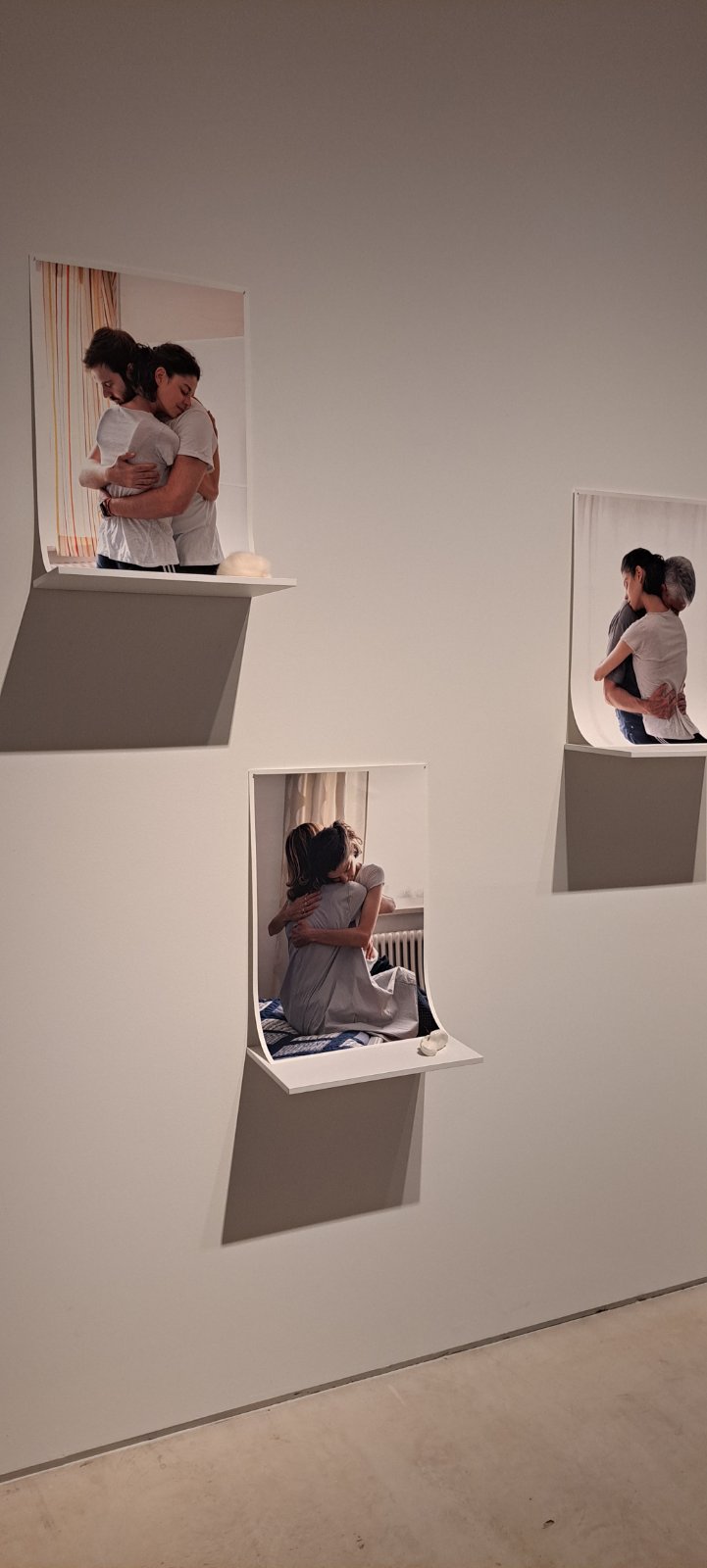I want to breathe on you
Where are you and who are you? When I can't feel the warmth of your body?
The exhibition "Modern Love" hosted by EMST prompts us to question the extent to which digital mediation has influenced human interaction and, by extension, our perception of love and romance.
Are we not together if I can't touch you? Are we not complete if I don't define you with my embrace? Considering the fact that we ourselves don't have a body, but we are a body, these questions become particularly interesting. The body digitally becomes a field that cannot be touched, felt, caressed, smelled, sweat, or formed in its dimensions by the gaze of another, but rather constitutes a virtual experience. When bodily presence is negated as part of the condition of digital communication, we stand somewhat safely anxious in front of our devices. In Maria Mavropoulou's photographic work, 'Lovers,' we encounter the complete absence of bodies, which leaves us perplexed about the significance and meaning of what is at stake between the screens that face each other in an empty bed. Similarly, in Laura Cemin's installation, "Persistence of Memory," the randomly arranged substitutes for warmth and tenderness of human contact prompt us to ponder the dynamics of these temporary acquired comforts.
Our bodies expose us. In glaring moments of exposure, we feel "naked," hiding our hands behind our torsos, one leg behind the other, protecting what we can. Within the framework of this care, which culminates through digital mediation, do we contribute to the strengthening of our emotional bonds? Does our abstention from connecting through devices constitute an act of promoting romantic love or a regression? The digital space mostly constitutes a realm of controlled reactions, allowing time for shaping our response to the other person. Written words and audio messages can be written, erased, corrected, and rewritten. Emojis convey a sense of physical communication virtually. Photography and video capture selected angles. All this control offered through the intangible digital world is not related to the direct interaction of lived experience and prompts us to question how this controlling capacity affects the expression of love and affection.
''The "Modern Love" exhibition argues that we must advocate for love as a powerful emotional force and a strong emotional bond between people, giving meaning to our lives in ways that no other interaction, "object," or experience can provide''.
The disembodied experience of digital mediation raises questions regarding the possible illusions that make love an easy affair that doesn't require the person as a "whole" and diminishes human presence and interaction as secondary. It brings to mind part of Marge Monko's installation, "I don't know you, so I can't love you," where photographically detached body parts of people who are in contact or want to establish contact are placed.
Through an intensely idiosyncratic exhibition, the artists allow us to raise issues and question possible ways out of the challenges created by the digital world today, "... as if nothing less than their own happiness is at stake" (Agaben).
source:
Modern Love exhibition catalogue by Grekou
H epimelia toy pneumatos by Sirago Tziara
Creation and anarchy by Georgio Agaben













Comments